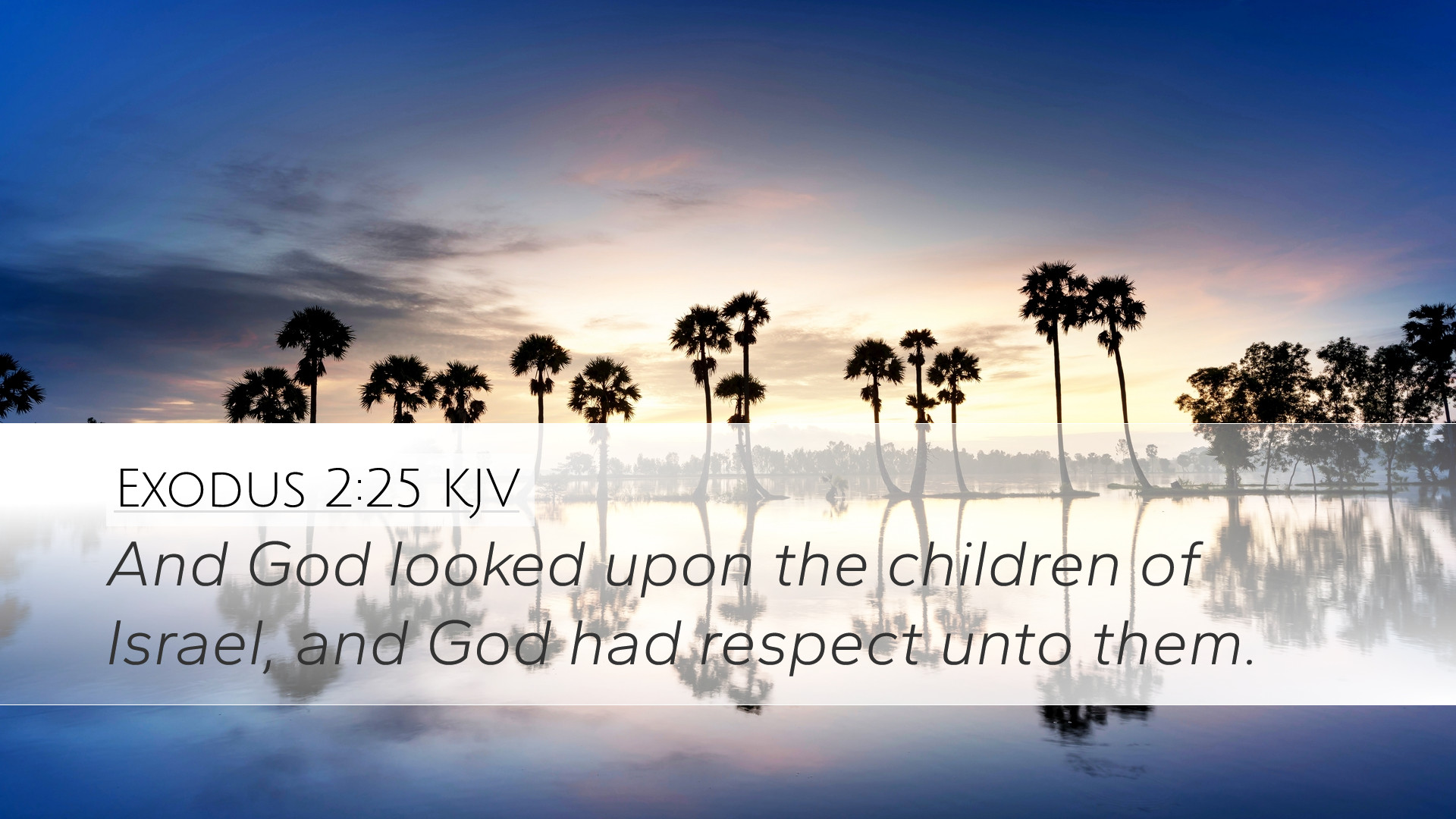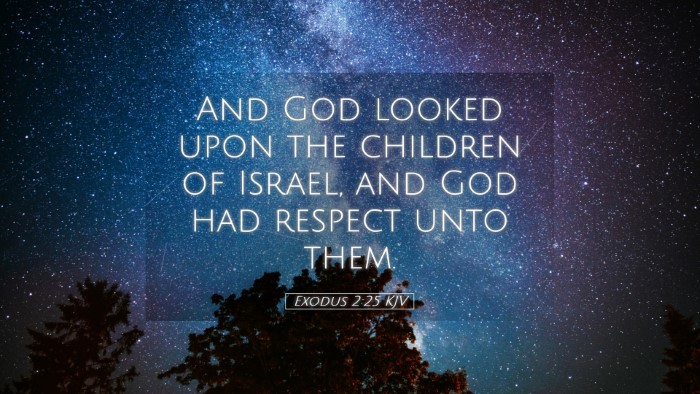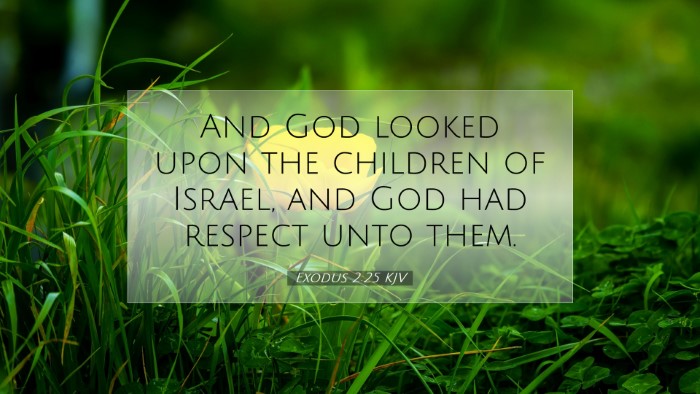Commentary on Exodus 2:25
Exodus 2:25 states: "And God looked upon the children of Israel, and God had respect unto them." This verse is pivotal as it encapsulates the beginning of God's active concern for His people in their state of affliction. Below, we explore insights from several public domain commentaries to provide a comprehensive understanding of this scripture.
Contextual Overview
In the book of Exodus, we witness the Israelite's enslavement in Egypt. The opening chapters of this book lay the groundwork for God's intervention through Moses. The verse in question is situated perfectly after the narrative of Moses' birth and early life, serving as a transition to the divine action that follows.
Theological Significance
Matthew Henry emphasizes the personal nature of God's involvement when he states that "God looked upon the children of Israel." This reflects God’s intimate awareness of their suffering. The Hebrew term used for "looked" denotes not just a casual glance but rather a deep engagement with their plight.
God’s Compassion
Albert Barnes interprets the phrase “had respect unto them” as indicative of God's compassion. He notes that this expression signifies more than mere observation; it implies a benevolent intention to rescue and deliver them. God’s respect for His people here showcases His character as one who empathizes with suffering and seeks to intervene.
Application and Implications
For pastors and theologians, this verse has profound implications for understanding God's nature and His promise of deliverance. God’s attention to the oppressed should inspire believers to emulate His compassion in their own ministries. Adam Clarke remarks that it is essential for believers to recognize that just as God was aware of the Israelites' suffering, He remains cognizant of the trials facing His people today.
The Assurance for Believers
This verse serves as an assurance for all believers that God is not indifferent. He sees our struggles, pains, and injustices. Such insights are relevant for preaching and counseling, providing a foundation for answering the question of theodicy — why God allows suffering. It reinforces the doctrine that God is compassionate and involved in the lives of His followers.
Historical Context
Understanding the historical context of Israel’s bondage in Egypt enhances the richness of this verse. The Israelites labored under harsh conditions, and their cries to God led to His awakening. Henry notes that this “cry of the Israelites” was indeed heard by God, showcasing the fidelity of His covenant with Abraham, Isaac, and Jacob, ensuring their descendants would not be forsaken.
The Covenant Relationship
Barnes elucidates the covenant relationship which grounds the significance of God's respect for the Israelites. This covenant not only highlights God's fidelity but also His legal and familial obligations to His people. He is bound by His covenant faithfulness, thus His concern for their plight is a manifestation of His character.
Spiritual Lessons
- Awareness: Be conscious of God’s awareness of our situations; just as He looked upon Israel, He sees us.
- Faithfulness: Trust in God's faithfulness; He remembers His promises and will act in His timing.
- Call to Action: Inspired by God's compassion, believers should actively engage in the struggles of others.
The Role of Prayer
Clarke points out that the acknowledgment of God’s respect brings encouragement to the faithful to remain persistent in prayer. The Israelites’ cries were not in vain, as God was actively working in their circumstances. Prayer is thus a vital element in invoking God's mercy and intervention.
Conclusion
Exodus 2:25 stands as a profound reminder of God’s observant nature and His enduring compassion toward His people. For pastors and students of theology, this verse underscores the importance of understanding God’s character as one who sees, hears, and acts in favor of the oppressed. As we delve into the broader narrative of Exodus, this moment serves as a prelude to God's mighty deliverance, shaping the theological framework for understanding redemption and divine intervention.


